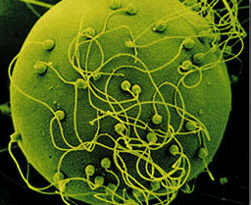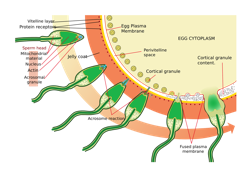

NUTRITIONAL STRATEGIES


Did you know that Magnesium and iron deficiency can play a role in missed conceptions?
“A study performed by Harvard medical school has shown that taking multivitamins improve chances of pregnancy. “
Below a comprehensive list of recommended micro nutrients from the American Pregnancy Association that can be used as a referencing tool when making a selection
Vitamin A: Vitamin A is involved in the regulation of gene expression, growth, and development, cellular production, vision, and immunity. Forms of Vitamin A, known as retinoids, are essential for embryonic and fetal development including the formation of the eyes, ears, limbs, and heart (12, 14).
Vitamin B Complex: The B-vitamins, Thiamine (B1), Riboflavin (B2), Niacin (B3), Pantothenic Acid (B5), Biotin (B7), Pyridoxine (B6), Folate (B9) and Cobalamin (B12), are amongst some of the most important vitamins to supplement during pregnancy
While all of the B-vitamins are essential, Folate sits at the top of the list for its imperative role in creating red blood cells, proteins and DNA. In addition to playing a vital role in the healthy development of the baby, folate has also shown in numerous studies to play a large role in the prevention of birth defects. Folate is preferable over folic acid, or the synthetic form of folate typically found in various fortified supplements and foods. Vitamin B deficiencies during pregnancy can cause fetal abnormalities and various side effects to the mother including hair loss, anemia, digestive problems, lower immune response, weakness, and fatigue.
Vitamins C & E: Vitamin C and Vitamin are two antioxidant vitamins that play a vital role in the production of collagen, a structural protein found in cartilage, tendons, bones, and skin. As antioxidants, they also support a healthy immune system and protect against oxidative damage
Vitamin D: Vitamin D is recognized as its function in bone health, however, Vitamin D also plays a number of other roles in health and disease prevention. Vitamin D levels affect pregnant women’s blood pressure, mood and brain function, and immunity, and as such, avoiding deficiencies is imperative to the health of mom and baby
Calcium: Calcium supplementation supports the development of the baby’s bones while simultaneously protecting the mother from bone loss while carrying the baby (5). Calcium has also been shown to support the functioning of the circulatory, nervous and muscular systems.
Iron: Iron requirements are significantly increased during pregnancy. While the mineral is needed for a variety of biological functions, the mineral is generally needed to support growth and development of the fetus and placenta during pregnancy, in addition to meeting the increased demand for red blood cells to transport oxygen. Iron deficiency is the primary cause of anemia during pregnancy (8), and as such, supplementing with iron during pregnancy is crucial.
Iodine: Sufficient intake of iodine is required for maternal thyroid hormone production, and thyroid hormone is necessary for myelination of the central nervous system and healthy fetal brain development. Iodine deficiencies have been shown to lead to inadequate production of thyroid hormone during pregnancy which can lead to irreversible brain damage, miscarriage, stillbirth and birth defects
Magnesium, Sodium & Potassium: Electrolytes are chemicals that support hydration within the body which is necessary for functions including transmissions of nerve impulses and muscle contractions. Magnesium, perhaps the most important electrolyte to supplement with during pregnancy, is required for healthy development and supports sufficient blood flow to the brain
Zinc: Zinc deficiencies are common in pregnant women due to rapid cell growth, and as such, proper supplementation is imperative. Zinc deficiencies during pregnancy have been associated with adverse outcomes including low birth weight, premature delivery and labor complications
Choline Bitartrate: In small amounts, choline can be synthesized by the body, but dietary intake is needed to maintain sufficient health. Choline is vital for embryonic and fetal brain development, healthy liver function and placental function. During pregnancy and lactation, a mother naturally delivers large amounts of choline to the fetus across the placenta and to the baby through breast milk, which places a larger demand on internal stores. As such, supplementation is key to maintaining adequate choline levels during pregnancy and lactation.
1. Andrian, UH, Mora, JR. & Iwata, M. Vitamin effects on the immune system. Nat Rev Immunol. 2010.
2. Belfort MA, Anthony J, Saade GR, Allen JC, Jr. A comparison of magnesium sulfate and nimodipine for the prevention of eclampsia. N Engl J Med. 2003; 348(4):304-311. (PubMed)
3. Blusztajn JK. Choline, a vital amine. Science. 1998; 281(5378):794-795. (PubMed)
4. Heringhausen, J & Montgomery, KS. Continuing Education Module—Maternal Calcium Intake and Metabolism during Pregnancy and Lactation. J Perinat Educ. 2005.
5. Holmes VA, Barnes MS, Alexander HD, McFaul P, Wallace JM. Vitamin D deficiency and insufficiency in pregnant women: a longitudinal study. Br J Nutr. 2009; 102(6):876-881. (PubMed)
6. Folic acid for the prevention of neural tube defects: US Preventive Services Task Force recommendation statement. Ann Intern Med. 2009; 150 (9):626-631. (PubMed)
7. Food and Nutrition Board, Institute of Medicine. Iodine. Dietary Reference Intakes for Vitamin A, Vitamin K, Boron, Chromium, Copper, Iodine, Iron, Manganese, Molybdenum, Nickel, Silicon, Vanadium, and Zinc. Washington, D.C.: National Academy Press; 2001:258-289. (National Academy Press)
8. Pearce EN. Monitoring and effects of iodine deficiency in pregnancy: still an unsolved problem? Eur J Clin Nutr. 2013; 67(5):481-484. (PubMed)
9. Shah D, Sachdev HP. Zinc deficiency in pregnancy and fetal outcome. Nutr Rev. 2006; 64(1):15-30. (PubMed)
10. Zeisel SH. Nutrition in pregnancy: the argument for including a source of choline. Int J Women’s Health. 2013; 5:193-199. (PubMed)
11. World Health Organization, UNICEF, ICCIDD. Assessment of iodine deficiency disorders and monitoring their elimination: a guide for programme managers. 3rd ed.: World Health Organization, 2007.
Probiotics for Vaginal Health and Fertility
Probiotics are useful for more than just gastrointestinal health. In fact, there are specific probiotic products that can help prevent and treat female urogenital conditions like bacterial vaginosis, vulvovaginal candidiasis, urinary tract infections and related complications of all three.
The bacteria that live in the vagina are substantially similar in all women around the globe. This is indicative of a relationship that was established long ago and which has remained robust over time. From an evolutionary perspective, such a trend suggests an adaptive advantage for both bacteria and humans. But why? A simple answer is that certain bacteria get a warm, moist place to live and in exchange, protect the vagina and help inhibit the growth of pathogens.
It has been a long held belief that lactobacilli, in bulk, promote vaginal health by helping to maintain an acidic pH in the vagina. The logic seems sound: increased vaginal pH and decreased numbers of lactobacilli are symptomatic of various infections ergo lactic acid producing lactobacilli likely prevent infection by maintaining a low vaginal pH. This rationale has led to recommending the consumption of yogurt with the expectation that the lactobacilli, particularly L. acidophilus, and other "active cultures" should promote vaginal health.
Fertility and Physical Activity
Weighing too much or too little can interrupt normal menstrual cycles, throw off ovulationor stop it altogether.
Combined with a balanced diet, regular exercise of almost any kind helps to elevate energy, stamina, and increase sexual desire. Just walking for 30 minutes a day has been reported to produce measurable benefits, even among those who are least active. It helps to maintain a healthy body weight that can raise your fertility quotient. Excess body fat can increase the amount of estrogen in your body, throwing the female fertility cycle out of balance.
Please note to consult your physician before beginning any diet or exercise program. Too much exercise can stop female reproductive cycles (amenorrhea), which makes it difficult, if not impossible, to conceive a child. Long-term dieting or too much exercise lowers hormonal levels and in most cases decrease fertility in men and women. If you cannot reduce your training, you must increase your caloric intake if you want to conceive.

Nutrition for Male Fertility
For men, the most important supplements to enhance fertility are vitamin C and zinc. Vitamin C (2,000 to 6,000 milligrams daily) helps prevent sperm from clumping or sticking together, thus improving the chances for fertility.
Zinc supplementation (100 to 200 mg daily) has been shown to increase testosterone levels, sperm count and sperm motility. High zinc sources include oysters, organ meats, lean beef, turkey, lamb, herring, wheat germ, legumes and nuts.
Arginine is an amino acid the body produces from the digestion of protein. It is found in high amounts in the head of the sperm. Although not available as a supplement in Canada, arginine has been shown to help low sperm counts and poor motility. In high doses, arginine is also a potent dilator of arteries, leading to better erections. Food sources of arginine include nuts, chocolate, meat, poultry, fish and dairy.
Other nutrients that have been shown to improve sperm counts include essential fatty acids (9 to 12 grams daily), chromium (1,000 mcg daily), selenium (200 mcg daily), copper (2 mg daily), vitamin E (800 IU daily), coenzyme Q10 (400 mg daily) and B-complex vitamins (50 mg daily), especially vitamin B12 (1,000 mcg daily)
REFLEXOLOGY ASSISTED FERTILITY - RAF™
RAF™ therapy before conception and throughout pregnancy nurtures the physical and emotional health of you and your unborn baby and prepares parents for an smooth transition into parenthood
WINDOW OF OPPORTUNITY
Most women reach their "fertility window" earlier and others much later. Women should take note that the timing of their fertile window can be highly unpredictable, even if their cycles are usually regular.
Only about 30 % of women have the "fertile window" within the days of the menstrual cycle identified by clinical guidelines, that is, between days 10 and 17. However, women, who reported to have cycles of 27 days or less, ovulated earlier than those with cycles longer than 27 days.
If you wait with intercourse until the temperature goes up or the Ovulation Predictor Kit has become positive, you may have already ovulated and experience a "missed conception”

References
Barrett, J., Marshall, John (1969). "The Risk of Conception on Different Days of the Menstrual Cycle." Population Studies 23(3): 455-461.
Columbo, B., Masarotto, G. (2000). "Daily Fecundability: First Results from a New Data Base." Demographic Research 3(5).
FertilityFriend.com (2004) Intercourse Timing and Frequency (http://www.fertilityfriend.com/Faqs/Intercourse_Timing_and_Frequency.html).
Hilgers, T. W., K. D. Daly, et al. (1992). "Cumulative pregnancy rates in patients with apparently normal fertility and fertility-focused intercourse." J Reprod Med 37(10): 864-6.
Royston, J. P. (1982). "Basal body temperature, ovulation and the risk of conception, with special reference to the lifetimes of sperm and egg." Biometrics 38(2): 397-406.
TIPS TO IMPROVE MALE FERTILITY

Ejaculate every 2 or 3 days, if not, then old sperm could deteriorate and affect the quality of newer sperm
Avoid exposure to heat - normal body temperature is incompatible with spermatogenesis (i.e., sperm production). Anything that increases the temperature of the testes such as prolonged sitting, tight underwear or slacks, hot baths, saunas, laptops, etc. will have a harmful effect on spermatogenesis.
Reduce Stress - Chronic stress impacts hormone levels, sperm as well as libido
IMPROVING CERVICAL MUCUS
A 1982 article in Fertility and Sterility revealed taking guaifenesin---which includes expectorant-only over-the-counter medicines like Robitussin or Diabetic Tussin---improves cervical mucus when 200 to 400 mg is taken three times daily five days prior to ovulation (along with plenty of water throughout the day)
THE POWER OF OUR SUBCONSCIOUS
Negative thoughts easily become a self-fulfilling prophecy that makes us powerless and out of control.
Do you know that positive thoughts just have as much power as negative thoughts?
Our subconscious mind is the computer of our brain, and we can program our subconscious into physical and emotional change.
Reflexology helps to increase the frequency of Alpha brain waves. These brainwaves are highly effective and used by many people to “cue” their goals, dreams and fantasies from subconscious into reality.
GRAVITY COUNTS
Right PositionSexual positions can make a difference in conceiving. Deposition of sperms close to cervix improves chances of pregnancy, and the best way to ensure this, is to have sex in missionary position with your partner above you. Deep penetration from rear entry is one of the most effective positions for successful conception. This posture prevents semen leakage and aids in deposition of sperms close to cervix.
If you have a tilted uterus, it is important to know its position. Whatever direction the sperm needs to head, give them a little gravitational edge. It may help to lie prone (on your stomach) after intercourse.

Mindful eating, what you put into your body affects your cellular health and this includes the cells that make the egg and sperm. Nutritional deficiencies are a major contributor to fertility problems.
Fresh vegetables, fruits, raw seeds and nuts, whole grains, lean grass fed free-range organic meats and organic dairy products
Mono-unsaturated and polyunsaturated fats help improve the body's sensitivity to insulin and cool inflammation, two trends that are good for fertility.

